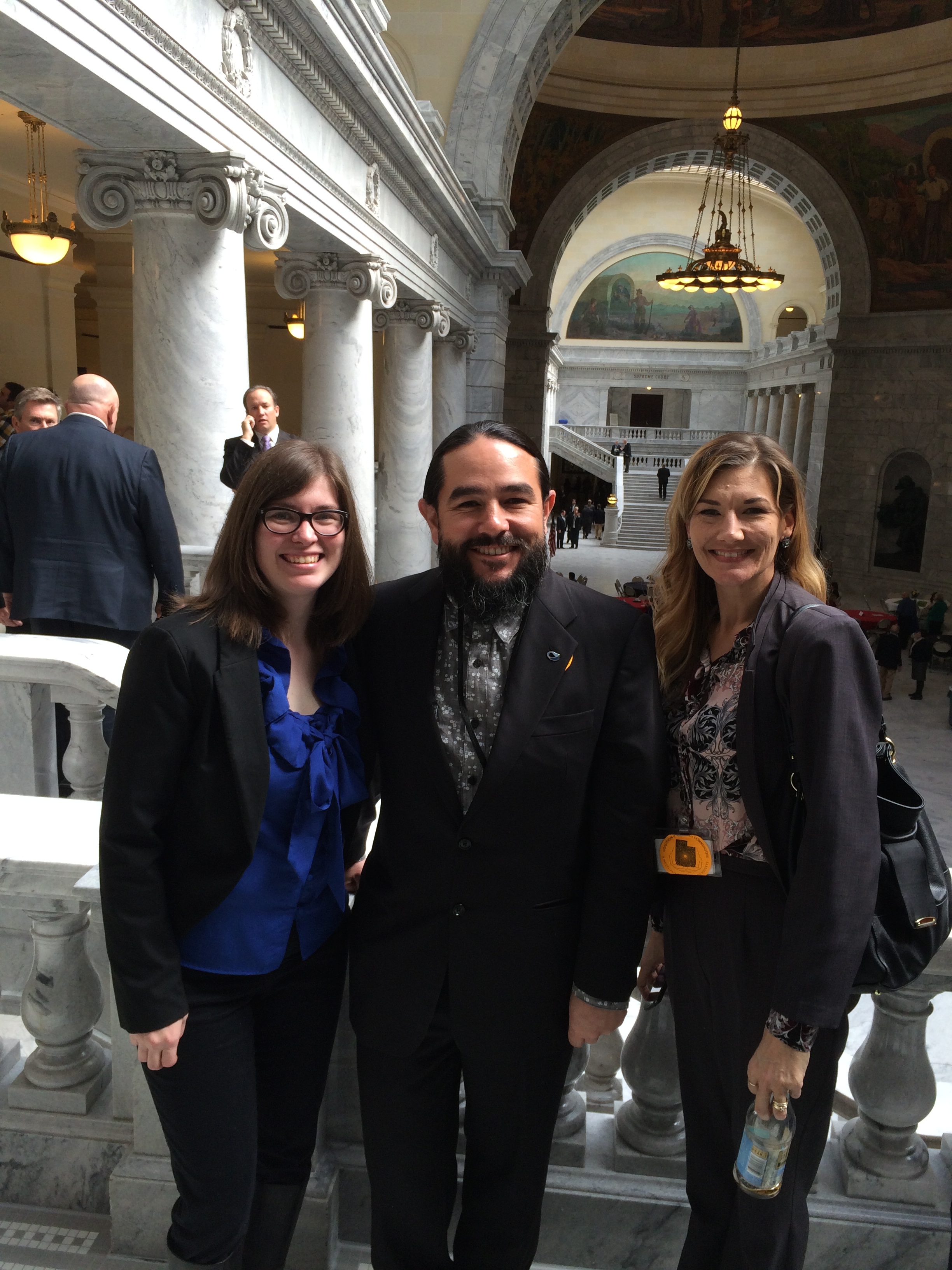By Shauntel Forte
Capital West News
SALT LAKE CITY — Not only is the Coalition of Religious Communities (CORC) taking a stand according to their religious beliefs, but they are also making a difference by giving a voice to the voiceless in poverty. CORC is a multi-faith organization (18-faiths from various Utah locations) tasked with advocating on behalf of low-income people. It is a sponsored group affiliated with Crossroads Urban Center in Salt Lake City. Members of CORC are currently lobbying for passage of several bills. This year, Kilo Zamora replaced Linda Hilton—who recently retired after 17 years of service—as the director of CORC.
Every Tuesday and Thursday, members of CORC meet together at the Capitol Building to discuss social issues and legislation about which they can then speak to their own legislators. This multi-faith response to poverty has been in effect since 1995 and continues to have a large impact today. Collectively, members of this interfaith community are lobbying to influence issues they deem important. “We are a coalition of religious committees, but we are here as citizens to reduce the level of harm that happens to low income citizens,” said Zamora. A different faith group hosts each gathering of CORC.

Consistent with their mission, their agenda for the 2015 legislative session includes LGBT issues, rape, a controlled substance database bill, payday lending, general assistance bills and so forth. The members discuss these issues and help one another become more informed. “There’s not just one expert around this table. We are all experts and we all teach each other about what we know,” said Zamora.
CORC tactfully turns the average passionate citizen into one with an active voice as a citizen lobbyist or constituent. “The coalition has done so much. We all have a passion, and today I hope to tap one of those passions,” Zamora continued, referring to . . .
Giving their opinion and outlook to legislators is not merely an exercise in First Amendment rights, it also helps to motivate or sway legislators to see things as their constituents see them. Hearing the personal experiences of citizens makes the bills and their impact real. The members of the board are encouraged to use personal experiences whenever talking with legislators about citizen needs. “They need to hear from us what really is the problem,” said Christine Stenquist, a CORC board member. “Lawmakers exposure to our religious communities help them to make wise decisions for the State.”
On Thursday, Feb. 12, the Jewish community hosted the CORC meeting and had representatives from various congregations. Rabbi Ilana Schwartzman of Kol Ami was present, along with Kitty Kaplan from the Jewish Woman Association, and other representatives of the Jewish faith in Utah. The three main topics discussed in Thursday’s meeting were bills involving general assistance, payday loan lending, and the Governor’s Healthy Utah Plan.
Members of the group took turns explaining each bill and its consequences. According to Senator Luz Escamilla’s general assistance bill SB42, “the GA program is a state funded program that provides limited financial assistance to disabled adults without dependent children. The objective of the program is to help adults who are temporarily disabled until they can return to work and to help those who are permanently disabled by connecting them with Social Security disability benefits.” CORC is in favor of the general assistance bill because it helps stabilize the lives of people with disabilities.
“GA is the bridge to get to disability,” said assistant director, Molly Williams. At CORC meetings, real people share their personal experiences with the committee in hopes of providing greater insight.
“I had a brain tumor,” said Christine Stenquist. “It was terribly difficult to get disability.” The General Assistance bill would benefit real people with real concerns, she said.
After becoming educated about the bills, and being motivated through roleplaying and positive enforcement, the members of CORC head to the House Chamber to talk to their legislators on behalf of compromised groups who most need their assistance.




